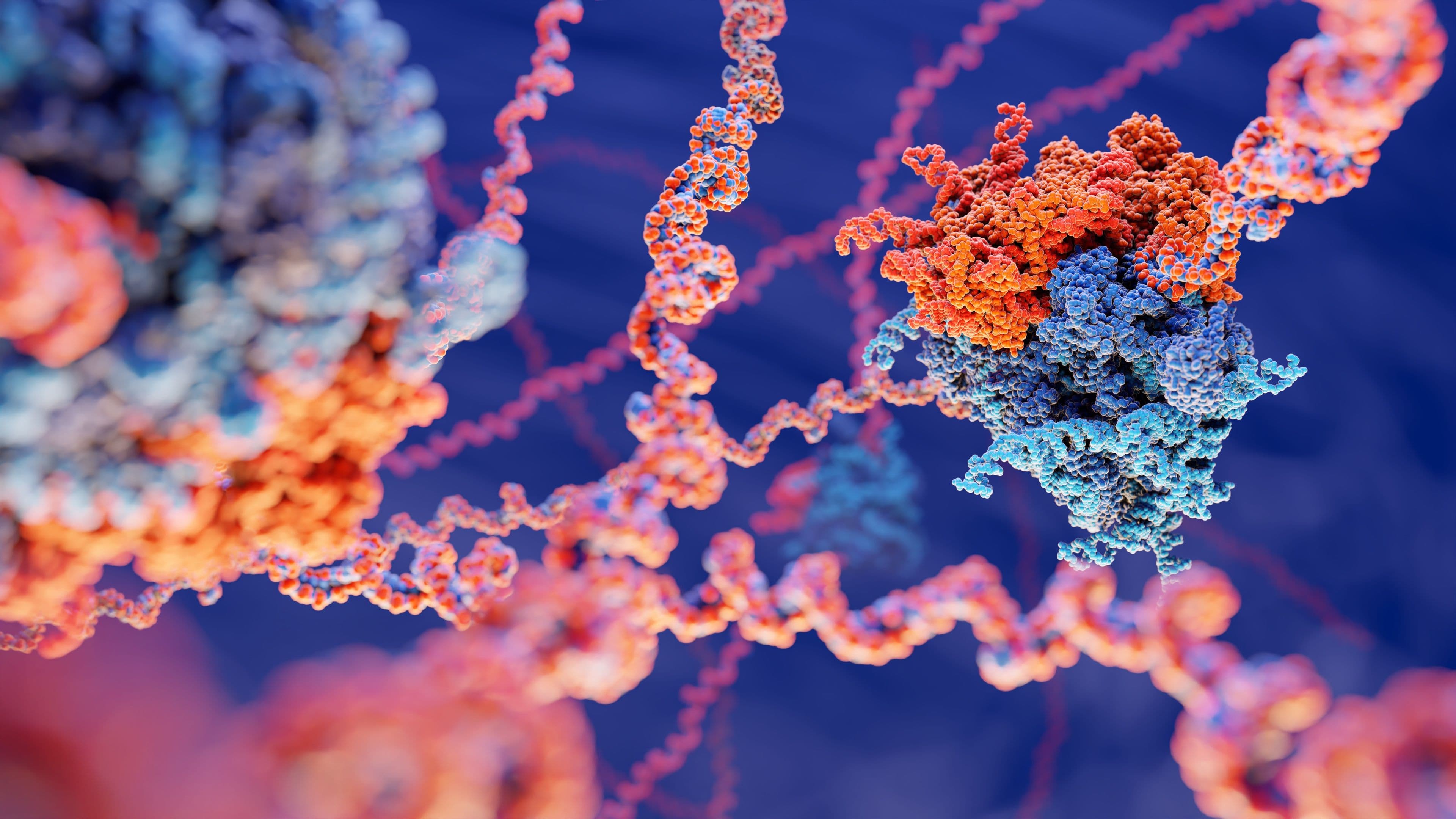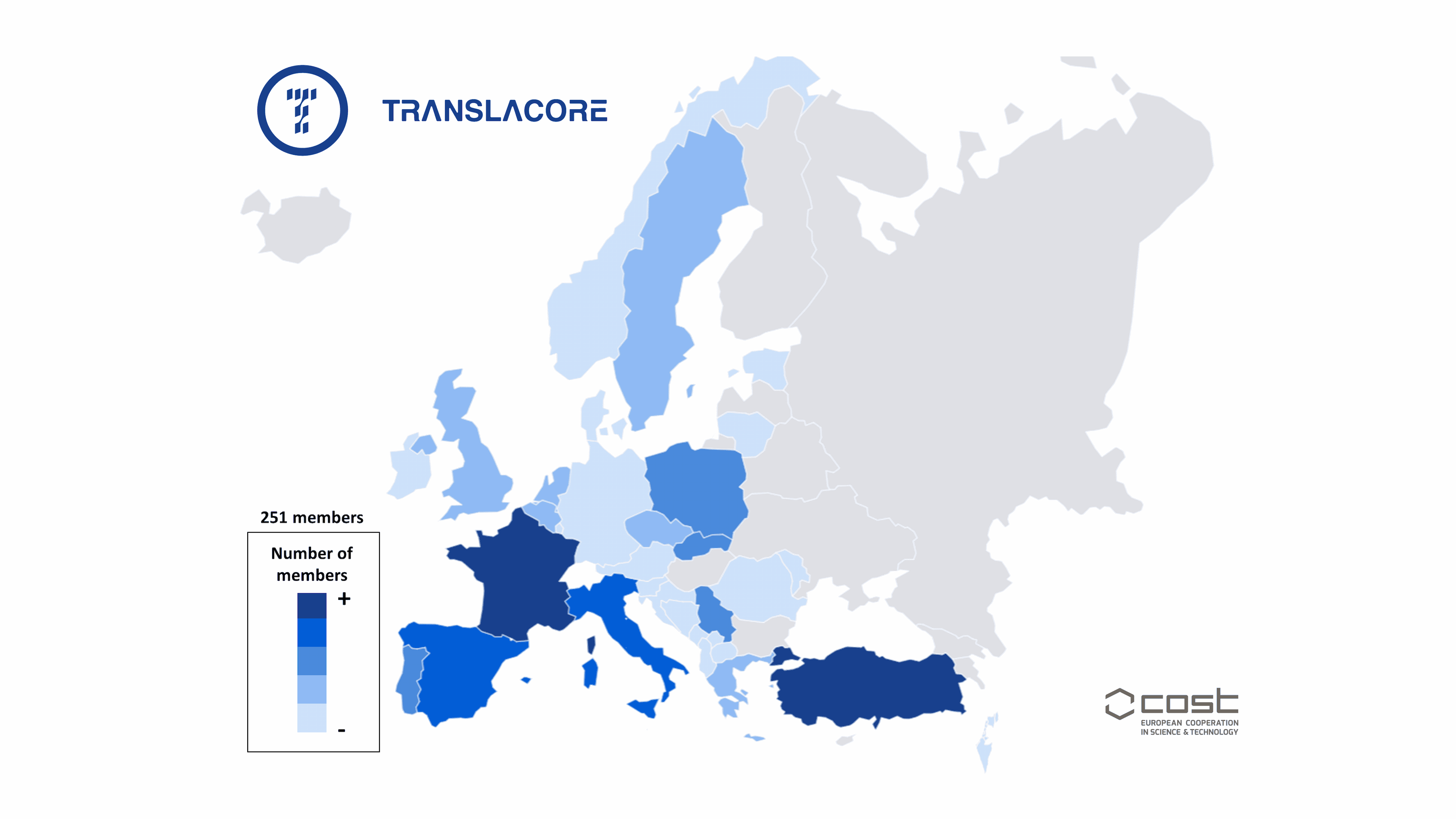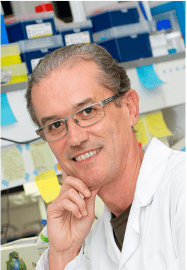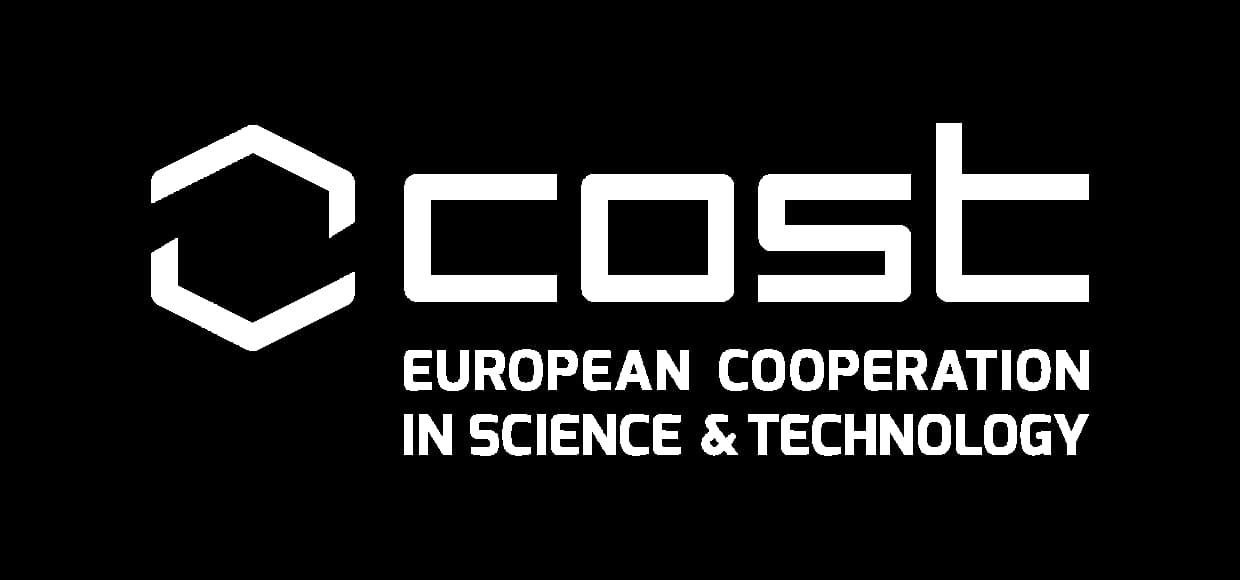Our aims
Philosophy
Understanding the importance of protein synthesis dysregulation in cancer
Objectives
Promoting multiple cross-disciplinary research partnerships
Capacity Building
Strengthen scientific interactions among experts across Europe with complementary skills
State of the art
Dysregulated translation in cancer exposes vulnerabilities that are amenable to targeted therapies.
Upcoming events in Translacore
View all events
ECI network

meetings

training school
People involved in Translacore
View all membersUpcoming events outside Translacore
View all eventsYou might also like
Translacore open database
International Poster Exhibition | Bologna, Italy | May 2026
“TRANSLACORE – Where Science Meets Art” invites artists to turn translational-control research into posters that spark public curiosity and conversation. TRANSLACORE is a European COST Action (CA21154) advancing research on translational control in cancer and its therapeutic opportunities. Selected works will be exhibited in Bologna, Italy (May 2026). Submission window: 15 Jan – 31 Mar 2026.

Gallery - the EMBO workshop Ribosome Synthesis: from Mechanisms to Therapy
TRANSLACORE organized a co-located meeting at the EMBO workshop Ribosome Synthesis: from Mechanisms to Therapy 13th Edition meeting, taking place from Sunday 7th – Friday 12th September 2025 at Churchill College, Cambridge, UK

the EURECA consortium
EURECA — the European Epitranscriptomics of Cancer Academy — is a training and research programme focused on RNA modifications in cancer. These chemical changes to RNA, once overlooked, are now recognised as important drivers of cancer initiation and progression. By studying them, EURECA researchers aim to improve early detection, prediction, and treatment focusing on prostate cancer, neuroblastoma and glioma.









